
Vladimir Nabokov in the Montreux Palace Hotel, at the time of the work on his last novel, Look at the Harlequins!
Photo: J. E. Rivers
Nabokovs Fifth Arc
NABOKOV AND OTHERS ON HIS LIFES WORK
Edited by J. E. Rivers and Charles Nicol
 UNIVERSITY OF TEXAS PRESS, AUSTIN
UNIVERSITY OF TEXAS PRESS, AUSTINTHE DAN DANCIGER PUBLICATION SERIES
Copyright 1982 by the University of Texas Press
Notes to Ada by Vivian Darkbloom and Postscript to the Russian
Edition of Lolita copyright 1982 by Vra Nabokov
A Few Things That Must Be Said on Behalf of Vladimir Nabokov
copyright 1982 by Dmitri Nabokov
All rights reserved
First Edition, 1982
Requests for permission to reproduce material from this work should be sent to Permissions, University of Texas Press,
Box 7819, Austin, Texas 78712.
utpress.utexas.edu/index.php/rp-form
Library of Congress Cataloging in Publication Data
Library ebook ISBN: 978-1-4773-0287-3
Individual ebook ISBN: 978-1-4773-0288-0
DOI: 10.7560/755222
Main entry under title:
Nabokovs fifth arc.
(The Dan Danciger publication series)
Bibliography: p.
1. Nabokov, Vladimir Vladimirovich, 18991977Criticism and interpretationAddresses, essays, lectures. I. Nabokov, Vladimir Vladimirovich, 18991977. II. Rivers, J. E. (Julius Edwin), 1944- III. Nicol, Charles, 1940- . IV Series.
PG3476.N3Z793 813.54 81-14764
ISBN 0-292-75522-8 AACR2
To David and John and to
Ed and Martha Lee,
Jonathan and Judy,
Tommy and Kim
Contents
The editors would like to thank Vra and Dmitri Nabokov, Philip Anderson, Stephen Jan Parker, Jim Rivers, Earl Sampson, and William Walker for their help and advice in the preparation of this book. Special thanks are due to Vra Nabokov for her permission to publish Nabokovs Notes to Ada by Vivian Darkbloom and Postscript to the Russian Lolita and for her help in proofreading these texts. We would also like to thank our contributors for their willingness to revise, polish, and repolish their essays in our shared attempt to create a fit memorial to Nabokov. And we would like to acknowledge our debt to the editors with whom we worked at the University of Texas Press: Suzanne Comer and Kathleen Lewis.
Alfred Appel, Jr.s Nabokov: A Portrait first appeared in the Atlantic in September 1971. A version of Paul S. Brusss essay The Problem of Text: Nabokovs Last Two Novels appeared in his book Victims (Bucknell University Press, 1981). Portions of Notes to Vivian Darkblooms Notes to Ada by J. E. Rivers and William Walker were originally published in the third issue of the Vladimir Nabokov Research Newsletter.
A grant from the Indiana State University Faculty Research Fund assisted in the preparation of this study.
The fourteenth chapter of Nabokovs autobiography begins with one of his discoveries, part pun and part revelation: The spiral is a spiritualized circle. Noting further that the Hegelian dialectic describes the essential spirality of all things in their relation to time, Nabokov goes on to apply his discovery to himself:
Twirl follows twirl, and every synthesis is the thesis of the next series. If we consider the simplest spiral, three stages may be distinguished in it, corresponding to those of the triad: We can call thetic the small curve or arc that initiates the convolution centrally; antithetic the larger arc that faces the first in the process of continuing it; and synthetic the still ampler arc that continues the second while following the first along the outer side.
A colored spiral in a small ball of glass, this is how I see my own life. The twenty years I spent in my native Russia (18991911) take care of the thetic arc. Twenty-one years of voluntary exile in England, Germany and France (19191940) supply the obvious antithesis. The decade I have already spent in my adopted country (194050) looks like the beginning of a synthetic envelopment.
Like Nabokov, the autobiography described a spiral. Originally titled Conclusive Evidence, it soon acquired the new title Speak, Memory. Then Nabokov wrote a Russian version (Drugie berega) with significant changes. Finally, Speak, Memory went through a third, synthetic arc, returning to English with the subtitle An Autobiography Revisited. By this time Nabokov had completed his own third arc, and the last sentence of the above passage from Conclusive Evidence became, The period spent in my adopted country (19401960) forms a synthesisand a new thesis. Furthermore, in revising the autobiography Nabokov added the words And so on to the end of the first paragraph quoted above, apparently to emphasize that twirl follows twirl not in a simple series of three but in an infinitely expanding pattern.
From the above quotation and its later additions we must draw the uncanny conclusion that Nabokovs move back to Europe in 1960 was already implicit in his original description of the spiraling patterns of his life in 1950. And the prophecy contained in the phrase And so on was also fulfilled, for Nabokovs residence in Europe from 1960 until his death in the summer of 1977 fell just short of describing another full arc of twenty years. Nabokovs life thus comes very close to achieving the formal perfection he sought in both life and art.
But Nabokovian forms are open forms, and there is always the implicit And so on. To the four arcs of Nabokovs lifethe Russian, the European, the American, and the neo-Europeana fifth arc is now being added: the arc of Nabokovs continuing life as an artist who speaks and will speak in many different voices to many different generations. The fifth arc is the arc of literary history. Dead is the mandible, says John Shade in Pale Fire, alive the song.
This book is intended as a metaphor for Nabokovs fifth arc and as a first stage in its continuing climb through the crystal land into the reflected sky. The essays that follow study both individual works and their relation to the lifes work. At the same time, they engage in a constant dialogue with previous criticism of Nabokov. In all these respects, they stand as tributes to Nabokov, celebrations as well as investigations of his unique literary achievement.
Our book begins with this fifth arcwith the end that is also a new beginning. Part I: The Fifth Arc opens with Alfred Appel, Jr.s portrait of Nabokov during the last period of his lifethe lionized, world-famous sage of Montreux. Appels memoir is followed by three aggressive and perhaps controversial essays concerned less with interpreting individual works than with abandoning, refining, or extending traditional viewpoints and techniques. James M. Ram-beau describes the traps Nabokovs writings hold for their critics; Dmitri Nabokov objects on behalf of his father to some recent commentators; and Phyllis A. Roth ventures into a psychological approach that Nabokov himself might have discouraged. The first section thus serves as a microcosm of the whole by highlighting the transition from Nabokovs life as a practicing writer to his continuing life as a stimulating and controversial figure in literary history.
We then return to the two earliest arcs of the spiral, to Nabokovs Russian and first European periods. Beverly Lyon Clark analyzes his little-known translation of

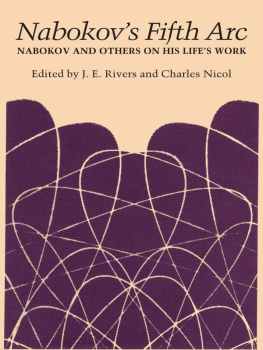
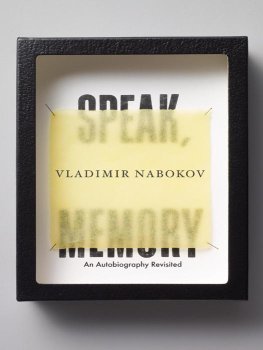

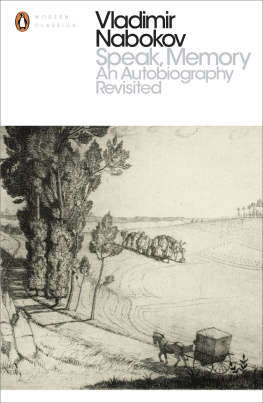
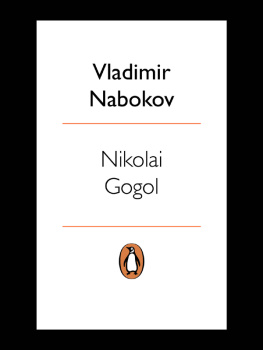
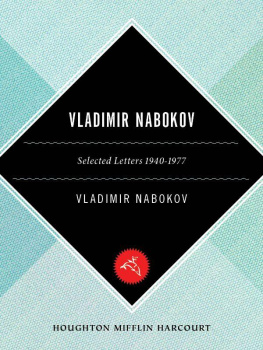
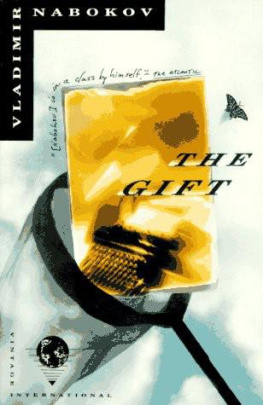
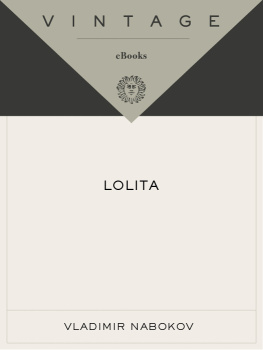
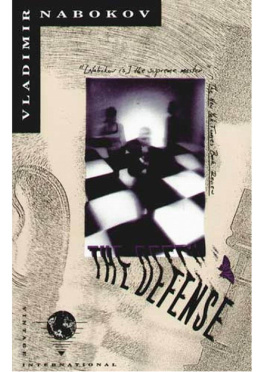
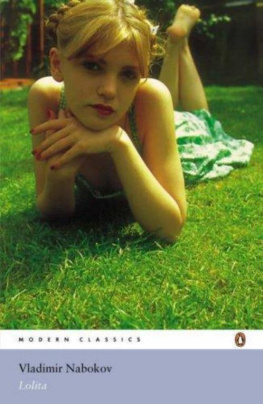


 UNIVERSITY OF TEXAS PRESS, AUSTIN
UNIVERSITY OF TEXAS PRESS, AUSTIN